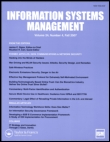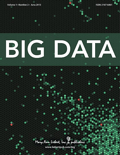
Informatics-Basel
Scope & Guideline
Pioneering Insights in Human-Computer Interaction
Introduction
Aims and Scopes
- Artificial Intelligence and Machine Learning Applications:
The journal emphasizes research on the application of AI and machine learning across diverse fields such as healthcare, education, and e-commerce, showcasing innovative methodologies and frameworks that leverage these technologies. - Decision Support Systems:
A significant focus is on developing decision support systems that enhance clinical, managerial, and operational decision-making processes, particularly in healthcare settings. - Data Analytics and Management:
Research on data management, analytics, and the integration of big data technologies is a core area, highlighting the importance of data-driven insights in various industries. - Ethical and Social Implications of Technology:
The journal explores the ethical considerations and societal impacts of emerging technologies, including AI and data privacy, ensuring that technological advancements align with social values. - Digital Transformation and Innovation:
Informatics-Basel also examines the processes of digital transformation within organizations, focusing on how technology can drive innovation and improve operational efficiency. - Interdisciplinary Approaches:
The journal encourages interdisciplinary research that combines insights from informatics, social sciences, healthcare, and engineering to address complex challenges and foster innovative solutions.
Trending and Emerging
- Generative AI and Its Applications:
There is a clear trend towards exploring generative AI technologies, including their applications in education, healthcare, and creative industries, indicating a growing interest in their potential benefits and challenges. - Health Informatics and Telemedicine:
Research focusing on health informatics, particularly related to telemedicine and digital health solutions, has surged, driven by the ongoing demand for remote healthcare services and the integration of technology in patient care. - Ethical AI and Responsible Technology Use:
Emerging discussions around the ethical implications of AI and responsible technology use are becoming more prominent, as researchers seek to address the societal impacts of these innovations. - Real-Time Data Processing and IoT:
The integration of Internet of Things (IoT) technologies with real-time data processing for applications in healthcare, smart cities, and industrial settings is gaining traction, showcasing the relevance of connected devices. - Augmented and Virtual Reality in Education:
The use of augmented and virtual reality technologies for educational purposes is on the rise, reflecting a trend towards immersive learning experiences that enhance student engagement and understanding. - Machine Learning in Public Health:
There is an increasing focus on applying machine learning techniques to public health challenges, particularly in analyzing health data and predicting outcomes, highlighting the intersection of data science and healthcare.
Declining or Waning
- Traditional Software Development Methodologies:
Research focused on conventional software development practices has decreased, likely due to the rise of agile methodologies and low-code/no-code platforms that emphasize rapid development and user involvement. - Basic Information Technology Training:
There is a noticeable decline in studies centered on basic IT training and digital literacy, suggesting that the field is moving towards more advanced applications and specialized skill sets. - Static Data Visualization Techniques:
Studies centered on traditional static data visualization methods are becoming less frequent, as there is a growing trend towards interactive and real-time data visualization approaches that enhance user engagement. - Generic Cybersecurity Measures:
Papers focusing solely on generic cybersecurity practices without an innovative or tailored approach are becoming less prominent, indicating a shift towards more specific and advanced cybersecurity strategies.
Similar Journals

International Journal of Data Science and Analytics
Empowering Insights Through Rigorous ResearchInternational Journal of Data Science and Analytics, published by SpringerNature, is a leading peer-reviewed journal dedicated to advancing the fields of data science and analytics. Since its inception in 2016, the journal has become an essential platform for researchers, professionals, and students, promoting the exchange of innovative ideas and cutting-edge research. With an impressive categorization in Q2 across multiple domains including Applied Mathematics, Computational Theory and Mathematics, and Information Systems, it demonstrates a notable impact within the academic community, as reflected by its high rankings in various Scopus categories. The journal emphasizes rigorous methodologies and practical applications of data science, making it a valuable resource for those seeking to enhance their understanding and application of data-driven solutions. Although it currently does not operate as an open-access journal, it is committed to disseminating high-quality research that shapes the future of analytics and computation. The journal's headquarters in Switzerland further enriches its international scope, fostering a global dialogue among scholars and practitioners alike.

INFORMATION SYSTEMS MANAGEMENT
Elevating Research in Information Systems ManagementINFORMATION SYSTEMS MANAGEMENT is a premier academic journal published by Taylor & Francis Inc, focusing on the ever-evolving fields of Information Systems, Computer Science Applications, and Library and Information Sciences. With an impressive track record spanning over three decades since its inception in 1992, this journal is recognized in the top quartile (Q1) of its categories as of 2023, reflecting its influence and contribution to the research community. The journal holds commendable rankings in Scopus, positioned at #6 out of 280 in Library and Information Sciences, #44 out of 817 in Computer Science Applications, and #23 out of 394 in Information Systems, all showcasing its esteemed standing among peers. While the journal is not open access, it remains a vital resource for researchers, professionals, and students seeking to enhance their understanding of information systems management through high-quality, peer-reviewed articles that illuminate current trends, innovative technologies, and theoretical advancements in the field. With its dedicated commitment to scholarly excellence, INFORMATION SYSTEMS MANAGEMENT continues to be a leading platform for fostering knowledge dissemination and promoting academic dialogue.

Journal of Advances in Information Technology
Exploring the Frontiers of AI and ComputingJournal of Advances in Information Technology, published by ENGINEERING & TECHNOLOGY PUBLISHING, is an essential platform for researchers, professionals, and students invested in the dynamic fields of information technology, artificial intelligence, and computer science. With its ISNN of 1798-2340, this journal provides a rigorous peer-reviewed environment that supports the dissemination of innovative research findings, methodologies, and case studies. Since its inception in 2019, it has made notable strides, as reflected in its Q3 quartile rankings across various categories, including Artificial Intelligence and Software, and maintains respectable Scopus rankings, further solidifying its position as a key player in the academic community. Featuring a diverse range of topics within its scope, the journal encourages open access to knowledge while serving as a beacon for those seeking to expand their understanding of current trends and technologies shaping the future. Join us in advancing the field with impactful research that is both relevant and cutting-edge.

INDUSTRIAL MANAGEMENT & DATA SYSTEMS
Bridging Industrial Management and Data Science for Tomorrow's LeadersINDUSTRIAL MANAGEMENT & DATA SYSTEMS is a leading academic journal published by Emerald Group Publishing Ltd, focusing on the intersection of industrial management and data analytics. With a strong reputation in multiple fields—including Computer Science Applications, Industrial and Manufacturing Engineering, Industrial Relations, Management Information Systems, and Strategy and Management—the journal has attained an impressive Q1 status in 2023 across these categories, emphasizing its critical role in advancing knowledge within these domains. The journal's extensive history, dating back to 1980 and converging through 2024, reflects its commitment to disseminating cutting-edge research that empowers professionals and researchers alike. No Open Access option is available, but it remains an essential resource for those involved in industrial management and data systems, as evidenced by its strong rankings in Scopus. By publishing high-quality articles that address emerging challenges and innovations, INDUSTRIAL MANAGEMENT & DATA SYSTEMS continues to shape the future landscape of its field, making it a valuable asset for dedicated scholars and practitioners.

JOURNAL OF INFORMATION SCIENCE AND ENGINEERING
Transforming Ideas into Innovative Solutions.JOURNAL OF INFORMATION SCIENCE AND ENGINEERING, published by the Institute of Information Science in Taiwan, is a pivotal platform for the dissemination of innovative research in the multidisciplinary fields of information science and engineering. Established in 1993, the journal primarily focuses on areas such as library and information sciences, human-computer interaction, hardware and architecture, as well as computational theory and software development. Despite holding a current Q4 ranking in several categories, the journal demonstrates significant potential for growth, particularly in computation and software systems, as evidenced by its Scopus rankings and percentiles. Researchers, professionals, and students will find this journal to be an invaluable resource to stay abreast of evolving theories and technologies in information science. The journal is accessible through traditional subscription models, fostering a broad academic outreach. It serves to enhance knowledge-sharing and collaboration within this dynamic and ever-evolving field.

Big Data and Cognitive Computing
Unlocking Insights, Empowering Innovation.Big Data and Cognitive Computing is a premier open-access journal published by MDPI, dedicated to advancing research in the dynamic fields of artificial intelligence, computer science, information systems, and management information systems. Since its inception in 2017, the journal has established a significant presence, reflected in its impressive categorization within the Q2 quartiles for multiple disciplines in the 2023 rankings. Situated in Switzerland, the journal provides a vital platform for researchers, professionals, and students to publish groundbreaking work and access high-quality articles, enhancing the exploration of big data applications powered by cognitive computing. With an increasing global emphasis on data-driven decision-making, Big Data and Cognitive Computing offers unrestricted access to innovative research findings, addressing both theoretical and practical aspects. The journal's contributions are integral for those looking to stay at the forefront of technological advancements and their implications across various sectors.

Journal of Business Analytics
Exploring the nexus of data science and management.The Journal of Business Analytics, published by Taylor & Francis Ltd, is an esteemed platform dedicated to advancing the field of business analytics through rigorous research and innovative methodologies. Since its inception in 2018, this journal has provided a vital resource for researchers, practitioners, and students interested in the intersection of data science, management, and decision-making processes. With an impact factor reflective of its commitment to high-quality research, the journal holds notable rankings across multiple disciplines, including Q2 in Industrial and Manufacturing Engineering and Management Information Systems, as well as Q3 in Artificial Intelligence and Management Science and Operations Research. The journal's broad scope encompasses pivotal themes such as predictive analytics, decision support systems, and statistical methodologies, making it an essential resource for a diverse audience. The Journal of Business Analytics continues to foster collaboration and knowledge exchange within the academic community, positioning itself as a cornerstone for those seeking to navigate the complex landscapes of business and technology.

IADIS-International Journal on Computer Science and Information Systems
Connecting Ideas, Inspiring Research in Computer ScienceIADIS-International Journal on Computer Science and Information Systems is a prominent platform dedicated to advancing research and knowledge in the field of computer science and information systems. Published by IADIS, this journal aims to disseminate innovative findings and theoretical advancements that address contemporary challenges and trends in technology. The journal fosters a rigorous peer-review process, ensuring that only high-quality research is shared with its audience, which includes researchers, professionals, and students from around the globe. Although the journal is not currently open access, it serves as a vital resource for those looking to deepen their understanding of the evolving landscape of computer science. The ISSN of this journal is 1646-3692, and it boasts a strong commitment to promoting interdisciplinary communication and collaboration in the realm of information technology, making it an essential read for anyone looking to stay at the forefront of this fast-paced field.

Big Data
Innovating solutions for data challenges.Big Data, an esteemed journal published by MARY ANN LIEBERT, INC, serves as a leading platform within the realms of computer science and information systems. Launched in 2013, this journal has made significant strides in shaping the discourse around the management, analysis, and applications of large-scale data. With a commendable impact factor reflected in its 2023 quartile rankings—Q1 in Information Systems and Management, and Q2 in both Computer Science Applications and Information Systems—Big Data is recognized for its quality and influence, holding a notable position in Scopus rankings. Renowned for its rigorous peer-review process, the journal welcomes original research, reviews, and discussions that address the challenges and innovations associated with big data technologies. Researchers, professionals, and students alike will find Big Data an indispensable resource that not only highlights emerging trends but also fosters collaboration and knowledge sharing within the data science community. Access options are available through institutional subscriptions and individual access, ensuring a broad dissemination of critical research findings.

Computers
Advancing the Frontiers of Computer ScienceComputers is a leading journal published by MDPI, dedicated to advancing research in the fields of computer networks and communications, as well as human-computer interaction. Since its inception in 2012, it has established itself as a vital resource for scholars and practitioners, achieving an impressive Q2 ranking in Computer Networks and Communications and a Q3 ranking in Human-Computer Interaction as of 2023. The journal is indexed in Scopus, highlighting its relevance with a rank of #135/395 and #72/145 in their respective categories. Published in Switzerland, this open-access journal ensures widespread dissemination of research findings, supporting the global academic community in enhancing technologies relevant to computer science. Access options are available, fostering an environment where knowledge is shared freely. With an emphasis on innovation, redesign, and collaboration between humans and technology, Computers plays a crucial role in shaping the future of digital interactions.